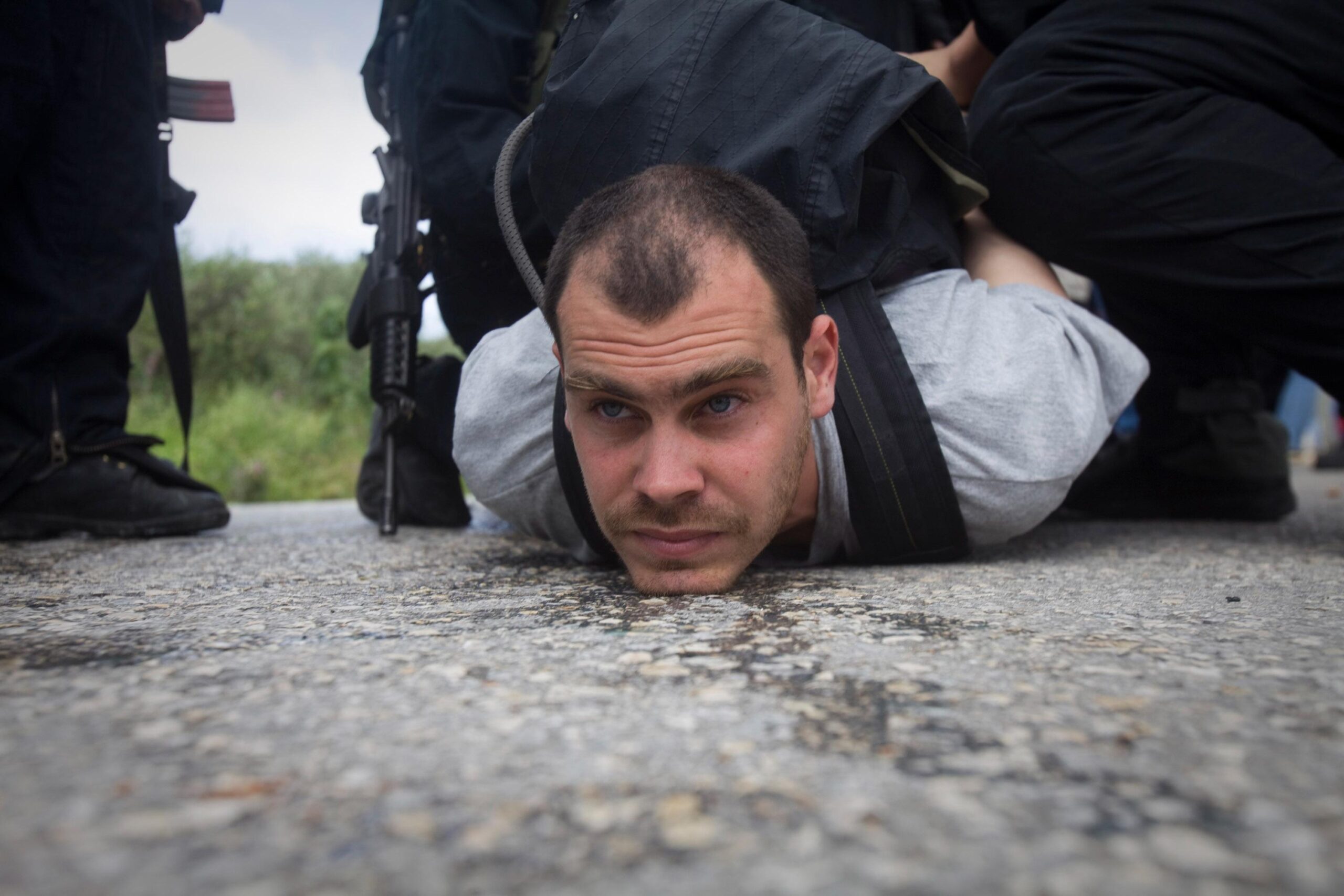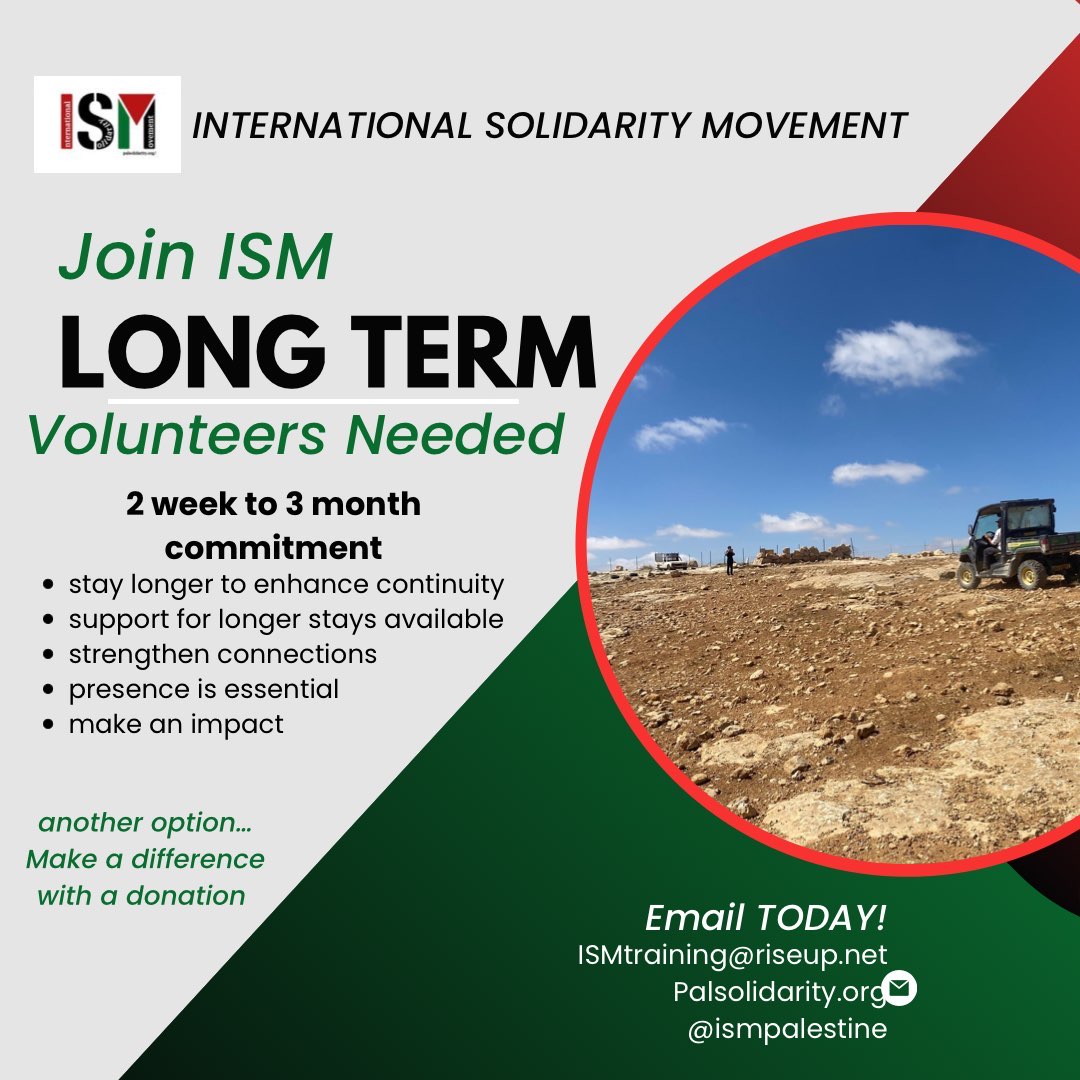-
Israeli State Files Indictment Against Anti-Zionist Israeli Activist
Jonathan Pollak, a long-time anti-Zionist activist from Jaffa, was slapped with an indictment for two counts of incitement to violence on Sunday (14 July, 2024). The indictment revolves around calls to join the Palestinian struggle against Israeli colonialism, made in a January 2020 article published in Israeli newspaper Haaretz, and in a June 2021 speech […]
-
Israeli Settlers Harassment in the Jordan Valley
15 July 2024 | International Solidarity Movement | Jordan Valley Activists and members of the International Solidarity Movement (ISM) recently faced harassment while working in a popular tourist spot in the Jordan Valley. The activists focused their efforts on Ras Al-Auja (Ras Al-Ein) where water access is severely restricted for Palestinians, often limited to a […]
-
Join the International Solidarity Movement in Palestine: Long-Term Volunteers Needed!
The International Solidarity Movement (ISM) in Palestine is seeking dedicated long-term volunteers to join our efforts in standing in solidarity with the Palestinian people. ISM is a Palestinian led movement founded in 2001 committed to resisting the long-entrenched and systematic oppression and dispossession of the Palestinian population, using non-violent, direct-action methods and principles **Minimum Commitment:** […]
Action Alert An Nabi Saleh Apartheid Wall Arrests BDS Bethlehem Bil'in Cast Lead Demonstration Denial of Entry Ethnic Cleansing Farmers Gaza Global Actions Hebron House Demolition International law Israeli Army Jerusalem Live Ammunition Nablus Ni'lin Prisoner Ramallah Rubber-coated steel bullets Settlement Settlers Settler violence Tear-Gas Canister Video



